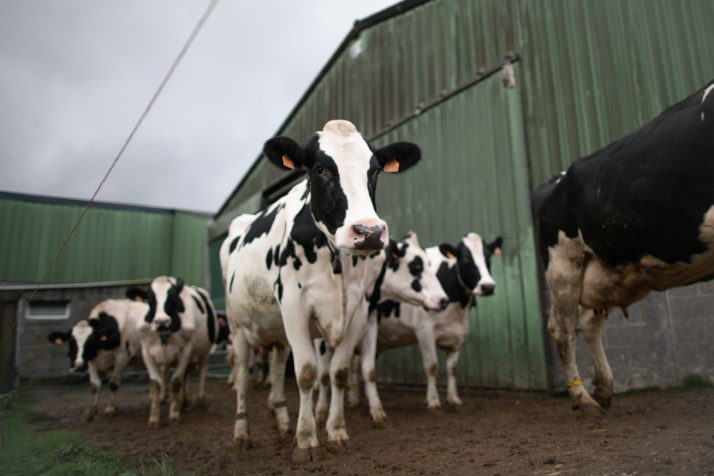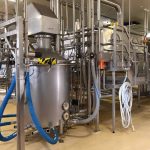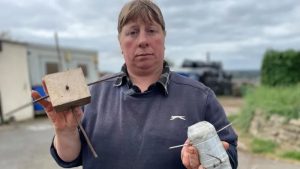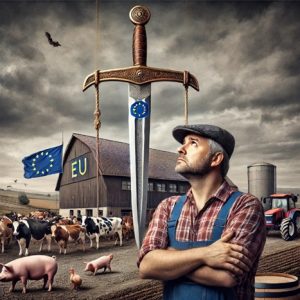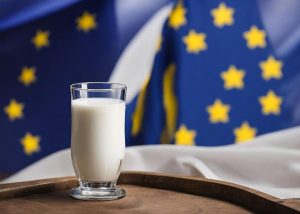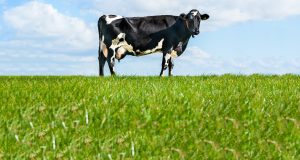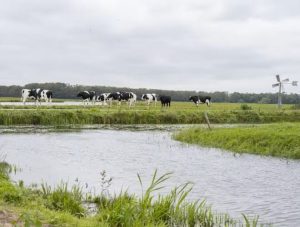
EU countries have formed a united front to ramp up pressure on Brussels to intervene and protect their food sectors, including dairy and meat, which have been hit hard by the coronavirus crisis.
The Commission has so far said that it is unable to act but Irish officials told POLITICO that they had collected the signatures of 27 agriculture ministers in a call for Brussels to bolster plunging food prices across Europe hit by low demand. One Irish diplomat described it as “the full Monty.”
In the letter, obtained by POLITICO, the ministers say there is “a need for urgent additional appropriate and responsible measures to be activated under the [Common Agricultural Policy]” to support farmers.
The unified push comes after EU farm chief Janusz Wojciechowski told the European Parliament’s agriculture committee Wednesday that “We haven’t got any extra money, particularly to intervene in markets.”
“We are at the end of a financial perspective so our budget possibilities for this year are very limited,” he added. “We have no new financial framework and we have no budget agreed for 2021, so it’s a difficult moment.”
An increase in consumers buying dairy products at home did not make up for the sharp drop in sales to restaurants.
He also stressed that other sectors, especially the meat sector, were facing similar challenges to the dairy industry.
Though there was an initial surge in demand for dairy products at supermarkets when the coronavirus crisis began, national lockdown measures shuttering restaurants and catering services have slashed sales for dairy farmers. If they are able to sell their wares, it’s at very low prices.
Countries including France, Germany and Lithuania have already been pressing the Commission to step in, calling for market measures that would allow the storage of milk, skimmed milk powder or cheese produced in surplus to lighten the burden of the coronavirus crisis on the dairy industry.
“We have worked to reduce the production of milk and we now ask the European Union to take its responsibility,” French Agriculture Minister Didier Guillaume said last week.
In the letter, the EU27 ministers specifically call for the “implementation of measures under the Common Market Organisation (CMO) Regulation of the CAP, including in particular aid for private storage, to support those sectors where significant market disturbances and price impacts have been assessed.”
Lots of milk, too little demand
Brussels-based farm lobby Copa-Cogeca said in a statement last week that “a very negative sentiment” is weighing down dairy prices at a time of year — April and May — that is usually a peak season for milk-makers.
Alexander Anton, the president of the European Dairy Association, said an increase in consumers buying dairy products at home did not make up for the sharp drop in sales to restaurants. On top of that, he added “we have lost export markets because the Asian markets did not buy any more, the freight is more expensive, and the export is basically muted.”
Industry insiders say that increased consumer demand for butter has helped to drag down the price of skimmed milk powder — a byproduct of the butter-making process.
According to Ettore Prandini, president of the major Italian farmers’ lobby Coldiretti, farmers are also facing problems because food processors are changing or terminating their contracts due to the crisis.
“A big part of the dairy products from southern Italy is destined [for] restaurants and all of a sudden that market disappeared,” Prandini said.
“The shutdown of these activities has generated fear and worries among farmers. Some processors took advantage of this situation to re-discuss milk supply contracts and in some cases to terminate them unilaterally.”
In some cases, processors have bought milk for around 26-28 cents per liter, down from a normal average of about 40 cents per liter, he said.
In the U.K., dairy farmers have warned they may have to dump 5 million liters of milk a week unless they receive more government support.
Ireland’s dairy sector claims that milk price leakage could carry a €65 million price tag for the country’s 17,000 dairy farmers by mid-summer. If the lockdown continues until the end of the year, that sum could rise to more than €130 million, Irish media report.
According to Anton at the European Dairy Association, the Commission might be legally obliged to step in, since under EU rules, the Commission can authorize public authorities to buy up to 109,000 tons of skimmed milk powder, if it falls below a benchmark price of €169.80/100 kg between March 1 and September 30 every year.
Anton said that such intervention is “likely” as skimmed milk powder prices have fallen from €2,300 per ton on March 23, to as low as €1,887 per ton on some trades on April 15.
One Commission official denied that Brussels was preparing a potential private storage aid proposal, but admitted that the pressure was growing.
“This is for sure a strong request made loudly by the dairy sector but up to now, no decision has been made,” they said.
On Wednesday, members of the Parliament’s agriculture committee like Spanish Socialists & Democrats lawmaker Clara Aguilera urged Commissioner Wojciechowski to “be a trailblazer” and take action.
“I would like you to really be a trailblazer and adopt the measures that are necessary,” Aguilera said. “Please trigger private storage for cheese, goats’ milk and sheep’s milk. This is extremely important.”
Giorgio Leali contributed reporting.
